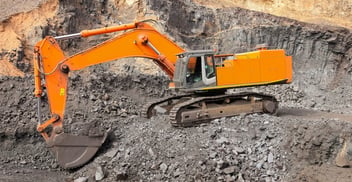Why should industries prioritize air pollution control?
Air pollution is a major concern for not only the environment but also for human health and the economy. Industries play a significant role in contributing to air pollution, and they must prioritize controlling and reducing their emissions. Not only is it a moral responsibility, but it also has long-term benefits for both the industry and society as a whole. A straightforward example of how air pollution is affecting our economy is the delay of goods and passenger trains, flights, and freight during winter in Delhi due to haze.
Reasons Why Air pollution Control should be the top priority:
- Air pollution is bad for Business:
Stating the impact of air pollution, the WHO director-general stated that air pollution is the new tobacco, although the effects are not limited to the health of human beings. After biomass burning, businesses in India are the biggest contributors to PM particles. Every year, air pollution costs Indian businesses around 7 lakh crore (USD 95 billion), or 40% of what it would cost to combat COVID-19 annually. This is equivalent to 3% of the GDP of India. In research published in The Lancet, it was noted that the national capital had the highest per-capita economic loss due to air pollution.
- Clean air is good for climate:
As consumers become more environmentally conscious, companies that fail to address air pollution may see a decline in customer trust and loyalty. Climate change can also lead to supply chain disruptions, changes in consumer demand, and increased regulatory compliance costs. Investing in air pollution control can also lead to long-term cost savings, as well as opportunities for innovation and brand differentiation. Companies that prioritize clean air and address climate change can also reap benefits such as improved employee retention and recruitment, increased customer loyalty, and a positive brand reputation. Businesses must recognize the importance of air pollution control and actively work to reduce their impact on the environment.
- Affects the health and productivity of the employees:
Employees are the backbone of a business. Poor air quality can harm employee health, leading to increased sick days and healthcare costs. The health effects of air pollution can lead to increased absenteeism, decreased productivity, and higher healthcare costs for employers. Long-term exposure to air pollution can also lead to cognitive impairment and decreased brain function, impacting decision-making and overall job performance.
- It affects the overall human health and environment:
Air pollution is a major issue that impacts both our health and the environment. Inhaling polluted air can lead to a variety of health problems, including respiratory issues, cardiovascular disease, and even cancer. Additionally, air pollution can harm the environment by damaging crops and wildlife, and contributing to climate change. Industries can work on implementing stricter emissions standards, encouraging the use of clean energy, and promoting sustainable transportation options.
Role of Industries in Air Pollution Control:
- Industries are major contributors to air pollution, releasing harmful chemicals and particles into the atmosphere.
- Air pollution control measures within industries include implementing emission control technology, monitoring and reporting emissions, and following regulations set by environmental agencies.
- Industries can also implement sustainable practices such as recycling, energy efficiency, and the use of renewable energy sources to reduce their impact on air quality.
- Collaboration between industries, government, and communities is essential for effective air pollution control and achieving clean air goals.
- Industry-led research and development can lead to advancements in pollution control technology, benefiting not only the industry but society as a whole.
- Industries have a responsibility to minimize their impact on air quality and work towards solutions for cleaner air.
- Deploying emerging air pollution control technologies to mitigate ambient air pollution.
Pure Skies by Devic Earth is the first scientific air purifier that improves air quality by 33-90% over large areas at the lowest cost per unit area. Pure Skies is a non-filter-based, pulsed radio wave-based technology for ambient air pollution. Our technology has been tested and proven effective in multiple sectors, including steel, cement, thermal power plants, the chemical industry, and metropolitan cities.
What industry does your business belong to? You name it and we cater to it.
Talk to our air quality experts now!
Reference:
https://ehjournal.biomedcentral.com/articles/10.1186/s12940-018-0373-2
https://www.weforum.org/agenda/2020/09/pollution-costs-lives-here-are-5-ways-companies-can-clean-up-the-air/#:~:text=Clean%20air%20is%20good%20for,power%20sector%20and%20industrial%20emissions.
https://business.edf.org/insights/3-reasons-why-air-pollution-should-be-a-top-priority-for-businesses/
https://wri-india.org/blog/why-do-indian-businesses-need-take-air-pollution-sseriously
https://airth.in/blog/air-pollution-at-the-workplace-how-to-deal-with-it/

.svg)
.webp?width=1080&height=1080&name=Free%20Case%20Study%20Steel%20Plant%20(1).webp)







Post Comments